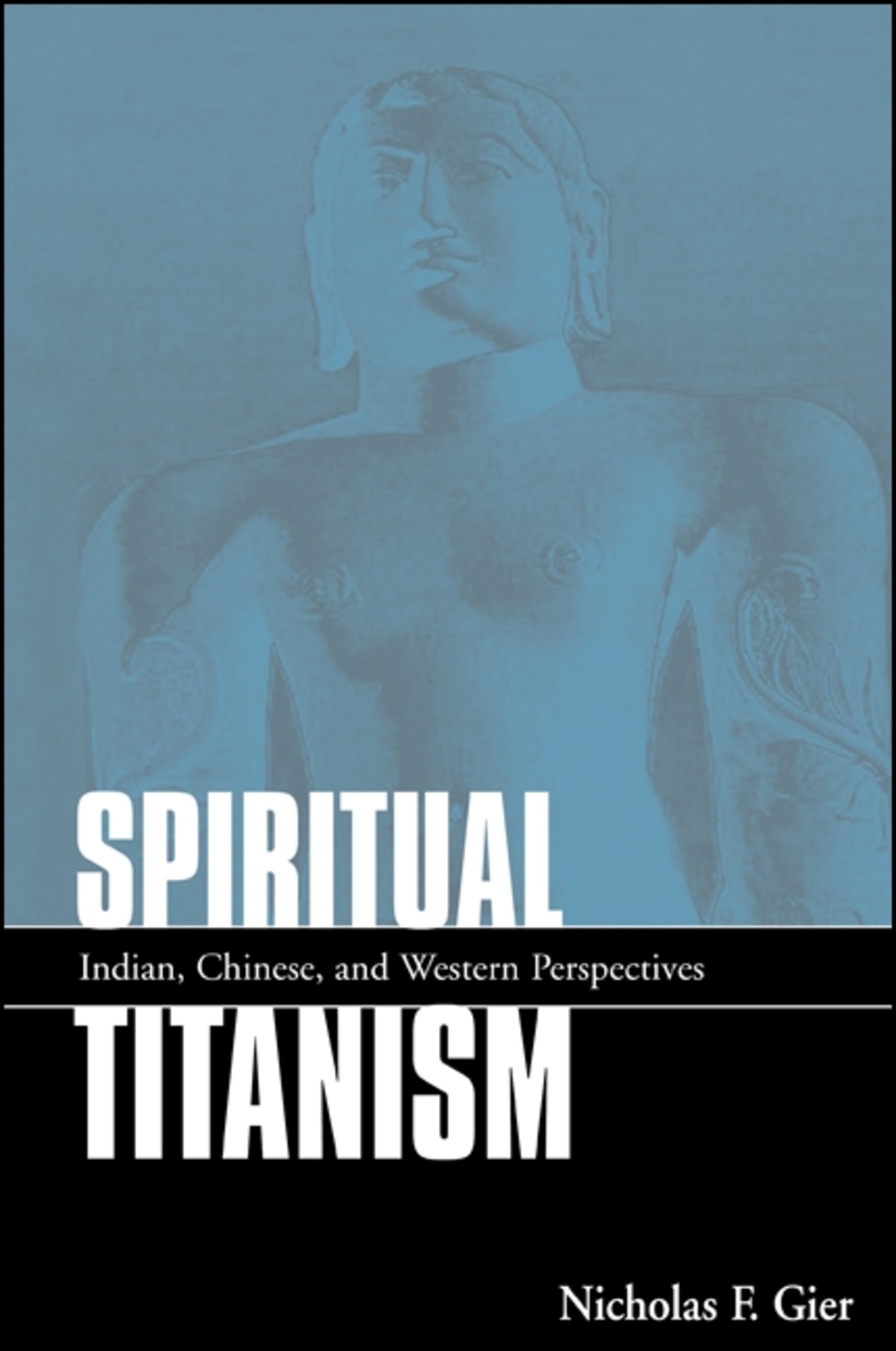We're sorry. An error has occurred
Please cancel or retry.
Spiritual Titanism

Some error occured while loading the Quick View. Please close the Quick View and try reloading the page.
Couldn't load pickup availability
- Format:
-
31 March 2000

A comparative philosophical consideration of the extremes of humanism, or "Titanism," this book critiques trends in Eastern and Western philosophy and examines solutions to them.
This work in comparative philosophy uses the concept of Titanism to critique certain trends in both Eastern and Western philosophy. Titanism is an extreme form of humanism in which human beings take on divine attributes and prerogatives. The author finds the most explicit forms of spiritual Titanism in the Jaina, Samkhya, and Yoga traditions, where yogis claim powers and knowledge that in the West are only attributed to God. These philosophies are also radically dualistic, and liberation involves a complete transcendence of the body, society, and nature. Five types of spiritual Titanism are identified; and, in addition to this typology, a heuristic based on Nietzsche's three metamorphoses of camel, lion, and child is offered. The book determines that answers to spiritual Titanism begin not only with the Hindu Goddess religion, but also are found in Buddhism, Confucianism, and Daoism, especially Zen Buddhism and Confucianism.


"The act of cross-cultural comparison, particularly in religious studies, is an art that once flourished but is now routinely challenged from a whole host of technical and specialist fronts. Gier's text, essentially a comprehensive essay of normative comparative philosophy, is especially refreshing in such a world, as it effectively brings together an impressive range of scholarship (Western philosophy and theology, comparative mythology, Jaina, Hindu, Buddhist, Daoist, and Confucian Studies) to create a truly comparative text with a distinct, original, philosophically and religiously important thesis. Gier's category of 'Titanism,' which functions as an ethical critique of mystical religiosities from the standpoint of a constructive postmodern and humanistic standpoint, enables him to accomplish this synthetic and normative feat, and to do it in a way that does not collapse the very real differences between these traditions into a simplistic perennialism or universalism. This is one of the few books that I have read that actually makes sense of what a 'postmodern' perspective is and how it might function. This is no mean accomplishment." — Jeffrey J. Kripal, author of Kali's Child: The Mystical and the Erotic in the Life and Teachings of Ramakrishna
PREFACE
ACKNOWLEDGMENTS
INTRODUCTION
Introduction
The Titans: Superhuman and Superdivine
Uttaravada versus Avataravada
Summaries of the Chapters
Nietzsche's Übermensch Not a Titan
1. TITANISM IN THE WEST
Introduction
Humanism and Superhumanism
Existentialism and Titanism
Christian Titanism and the Incarnation
Western Answers to Titanism
2. THE SELF AND CONSTRUCTIVE POSTMODERNISM
Introduction
Premodernism, Modernism, and Postmodernism
Hebraic and Buddhist Skandhas
Problems with Indian Dualisms
ACritique of Advaita Vedanta
ABuddhist Dialectic of Reconstruction
Conclusions
3. PROMETHEUS EAST: GREEK AND HINDU TITANS
Introduction
Asura Titanism
Human Titans in the Puranas
Titans and Olympians
Conclusions
4. JAINA SUPERHUMANISM AND GNOSTIC TITANISM
Introduction
Jaina Colossi and the Cosmic Man
The Status of the Jaina Gods
Man Is God and Homo Mensura
Omniscience: Mahavira and the Buddha
Anekantavada and Gnostic Titanism
Panzooism, Mind-Body, and Process Philosophy
Conclusions
5. HINDU TITANISM
Introduction
Types of Indian Titanism
Yoga Titanism
The Purusa Hymn and its Legacy
The Purusa as Cosmic Yogi
Monism, Ecology, and Titanism
6. THE YOGI AND THE GODDESS
Prologue: The Dancing Goddess
Introduction
The Material Principle: East and West
The Goddess in Indian Philosophy
Puranic Expressions of the Goddess
Kurtz's Psychoanalytic Interpretation
Does the Goddess Speak with a Woman's Voice?
Conclusions
Epilogue: The Triumph of the Goddess
7. NEO-VEDANTA AND AUROBINDOS SUPERMAN
Introduction
Ramakrishna: Kali's Child
Vivekananda's "Manly" Neo-Vedanta
Supermind, Superman, and Supernature
Conclusions
8. BUDDHISM, HUMANISM, AND TITANISM
Introduction
Buddhist Humanism
The Buddha Is Just the Buddha
The Buddha as Mahapurisa
The Cosmological Buddha of Mahayana
The Siddhas: Buddha's Lions
Zen, the Body, and Society
Conclusions
9. ON THE DEIFICATION OF CONFUCIUS
Introduction
A History of Confucius' Elevation
Is the Sage God?
The Sage as a Great Person
10. XUNZI AND NEO-CONFUCIANISM
Introduction
Xunzi, Tian, and the Cosmic Triad
Is Xunzi a Technological Titan?
Machle: Xunzi Not a Titan
Neo-Confucianism and Titanism
Self, Body, and Society
11. LAOZI, ZHUANGZI, AND NIETZSCHE
Introduction
Purusa and Panku
Immortality and the Immortals
Zhuangzi and Postmodernism
Zhuangzi and the Perfect Person
Zhuangzi and Nietzsche
The Triumph of the Confucian Sage
NOTES
SELECTED BIBLIOGRAPHY
INDEX



